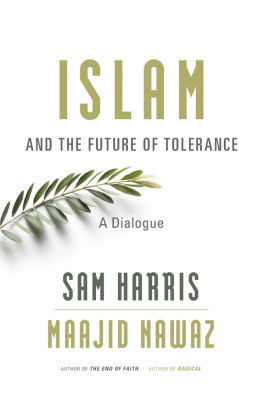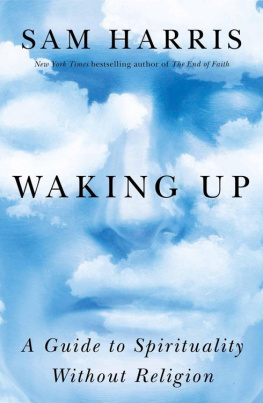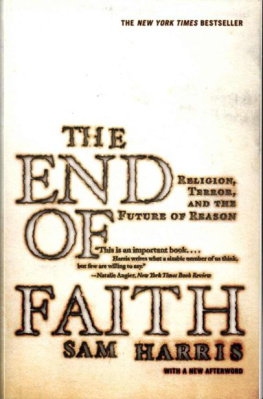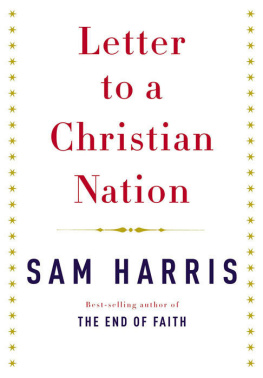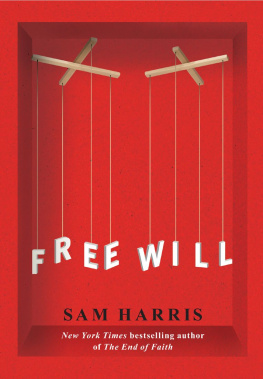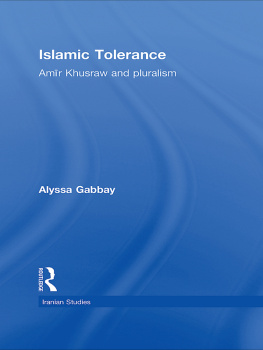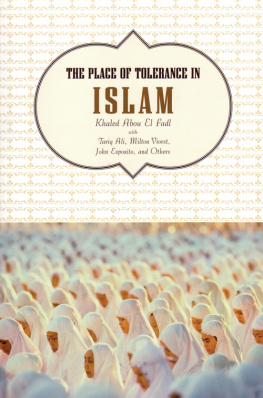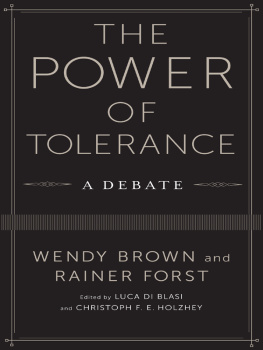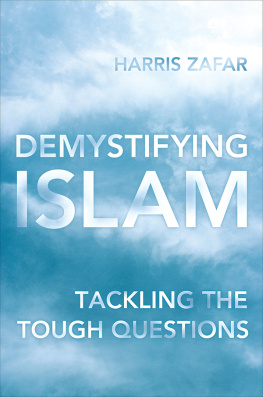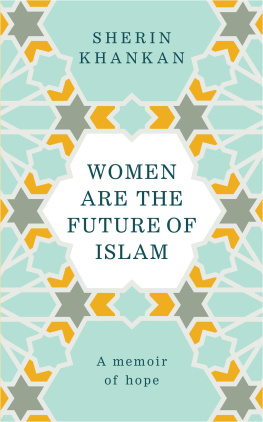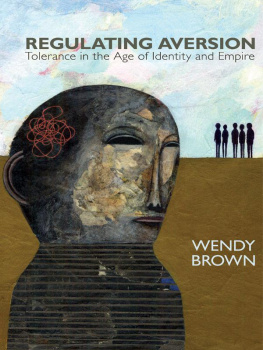Sam Harris - Islam and the Future of Tolerance: A Dialogue
Here you can read online Sam Harris - Islam and the Future of Tolerance: A Dialogue full text of the book (entire story) in english for free. Download pdf and epub, get meaning, cover and reviews about this ebook. year: 2015, publisher: Harvard University Press, genre: Politics. Description of the work, (preface) as well as reviews are available. Best literature library LitArk.com created for fans of good reading and offers a wide selection of genres:
Romance novel
Science fiction
Adventure
Detective
Science
History
Home and family
Prose
Art
Politics
Computer
Non-fiction
Religion
Business
Children
Humor
Choose a favorite category and find really read worthwhile books. Enjoy immersion in the world of imagination, feel the emotions of the characters or learn something new for yourself, make an fascinating discovery.
- Book:Islam and the Future of Tolerance: A Dialogue
- Author:
- Publisher:Harvard University Press
- Genre:
- Year:2015
- Rating:3 / 5
- Favourites:Add to favourites
- Your mark:
- 60
- 1
- 2
- 3
- 4
- 5
Islam and the Future of Tolerance: A Dialogue: summary, description and annotation
We offer to read an annotation, description, summary or preface (depends on what the author of the book "Islam and the Future of Tolerance: A Dialogue" wrote himself). If you haven't found the necessary information about the book — write in the comments, we will try to find it.
Islam and the Future of Tolerance: A Dialogue — read online for free the complete book (whole text) full work
Below is the text of the book, divided by pages. System saving the place of the last page read, allows you to conveniently read the book "Islam and the Future of Tolerance: A Dialogue" online for free, without having to search again every time where you left off. Put a bookmark, and you can go to the page where you finished reading at any time.
Font size:
Interval:
Bookmark:
ISLAM
AND THE FUTURE OF TOLERANCE

A Dialogue
SAM HARRIS

MAAJID NAWAZ

Cambridge, Massachusetts London, England
2015
Copyright 2015 by Sam Harris and Maajid Nawaz
ALL RIGHTS RESERVED.
Jacket image: Getty Images
Jacket design: Graciela Galup
978-0-674-08870-2 (alk. paper)
978-0-674-73706-8 (EPUB)
978-0-674-73705-1 (MOBI)
The Library of Congress has cataloged the printed edition as follows:
Harris, Sam
Islam and the future of tolerance : a dialogue / Sam Harris, Maajid Nawaz.
pages cm
Includes bibliographical references and index.
1. TolerationReligious aspectsIslam. 2. DialogueReligious aspects. I. Nawaz, Maajid. II. Title.
BP171.5.l365 2015
297.2'8dc23 2015009535
Harris Maajid, thank you for taking the time to have this conversation. I think the work that youre doing is extremely important. Im not sure how much we agree about Islam or about the prospects for reforming the faithand it will be useful to uncover any areas where we divergebut I want you to know that my primary goal is to support you.
Nawaz Thats very kind of you. I appreciate that. As you know, we are working in a very delicate area, walking a tightrope and attempting to bring with us a lot of people who, in many instances, do not want to move forward. It is very important that we have this conversation in as responsible a way as possible.
Harris Agreed. Id like to begin by recalling the first time we met, because it was a moment when you seemed to be walking this tightrope. It was, in fact, a rather inauspicious first meeting.
In October 2010, I attended the Intelligence Squared debate in which you were pitted against my friends Ayaan Hirsi Ali and Douglas Murray. We met afterward at a dinner for the organizers, participants, and other guests. People were offering short remarks about the debate and otherwise continuing the discussion, and at one point Ayaan said, Id like to know whether Sam Harris has anything to say. Although I was well into a vodka tonic at that moment, I remember what I said more or less verbatim. I addressed my remarks directly to you. We hadnt been introduced, and I dont think you had any idea who I was. I said, essentially, this:
Maajid, I have a question for you. It seems to me that you have a nearly impossible task and yet much depends on your being able to accomplish it. You want to convince the worldespecially the Muslim worldthat Islam is a religion of peace that has been hijacked by extremists. But the problem is that Islam isnt a religion of peace, and the so-called extremists are seeking to implement what is arguably the most honest reading of the faiths actual doctrine. So your maneuvers on the stage tonightthe claims you made about interpretations of scripture and the historical context in which certain passages in the Quran must be understoodappear disingenuous.
Everyone in this room recognizes that you have the hardest job in the world, and everyone is grateful that youre doing it. Someone has to try to reform Islam from within, and its obviously not going to be an apostate like Ayaan, or infidels like Douglas and me. But the path of reform appears to be one of pretense. You seem obliged to pretend that the doctrine is something other than it isfor instance, you must pretend that jihad is just an inner spiritual struggle, whereas its primarily a doctrine of holy war. Id like to know whether this is, in fact, the situation as you see it. Is the path forward a matter of pretending certain things are true long enough and hard enough so as to make them true?
I should reiterate that I was attempting to have this conversation with you in a semipublic context. We werent being recorded, as far as I know, but there were still around seventy-five people in the room listening to us. Im wondering if you remember my saying these things and whether you recall your response at the time.
Nawaz Yes, I do remember that. Im glad you reminded me of it. I hadnt made the connection with you. Im also grateful you mentioned that although we were not on air, many others were present. To my mind, it was just as important inside that room as outside it for people to take what I was saying at face value. In fact, my desire to impact Muslim-minority societies with my message is just as strong as my desire to impact Muslim-majority societies. Part of what I seek to do is build a mainstream coalition of people who are singing from the same page. That doesnt require that they all become Muslim or non-Muslim. On the contrary, what can unite us is a set of religion-neutral values. By focusing on the universality of human, democratic, and secular (in the British and American sense of this word) values, we can arrive at some common ground. It follows that all audiences need to hear this message. Even inside that room, therefore, the stakes were high. To lose that audience would be to realize my fear: the polarization of this debate between those who insist that Islam is a religion of war and proceed to engage in war for it, and those who insist that Islam is a religion of war and proceed to engage in war against it. That would be an intractable situation.
Now, moving to the specifics of your question, I responded in the way I did because I felt you were implying that I was engaging in pretense by arguing that Islam is a religion of peace. If I remember correctly, you said, Its understandable in the public context, but here in this room cant you just be honest with us?
Harris Yes, thats exactly what I said.
Nawaz Yes. Cant you just be honest with us in here? implied that I hadnt been honest out there. My honest view is that Islam is not a religion of war or of peaceits a religion. Its sacred scripture, like those of other religions, contains passages that many people would consider extremely problematic. Likewise, all scriptures contain passages that are innocuous. Religion doesnt inherently speak for itself; no scripture, no book, no piece of writing has its own voice. I subscribe to this view whether Im interpreting Shakespeare or interpreting religious scripture.
So I wasnt being dishonest in saying that Islam is a religion of peace. Ive subsequently had an opportunity to clarify at the Richmond Forum, where Ayaan and I discussed this again. Scripture exists;
Part of our challenge is to galvanize and organize this silent majority against jihadism so that it can start challenging the narrative of violence that has been popularized by the organized minority currently dominating the discourse. This is what I was really trying to argue in the Intelligence Squared debate, but the motion forced me to take a side: war or peace. I chose peace.
Harris I understand. My interest in recalling that moment is not to hold you accountable to your original answer to meand it may be that your thinking has evolved to some degree. But our conversation broke down quite starkly at that point. I dont remember how we resolved it.
Nawaz (laughing) I dont remember that we did resolve it.
Harris Well, lets proceed in a spirit of greater optimism than may seem warranted by our first meeting, because we have a lot to talk about. However, before we dive into the issues, I think we should start with your background, which is fascinating. Perhaps you can tell our readers why youre in a position to know so much about the problems were about to discuss.
Font size:
Interval:
Bookmark:
Similar books «Islam and the Future of Tolerance: A Dialogue»
Look at similar books to Islam and the Future of Tolerance: A Dialogue. We have selected literature similar in name and meaning in the hope of providing readers with more options to find new, interesting, not yet read works.
Discussion, reviews of the book Islam and the Future of Tolerance: A Dialogue and just readers' own opinions. Leave your comments, write what you think about the work, its meaning or the main characters. Specify what exactly you liked and what you didn't like, and why you think so.

